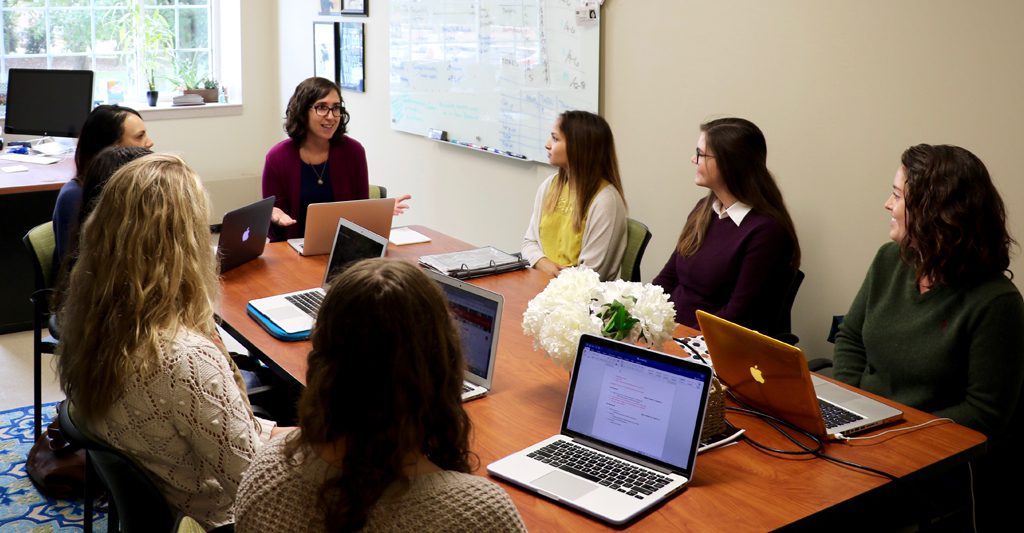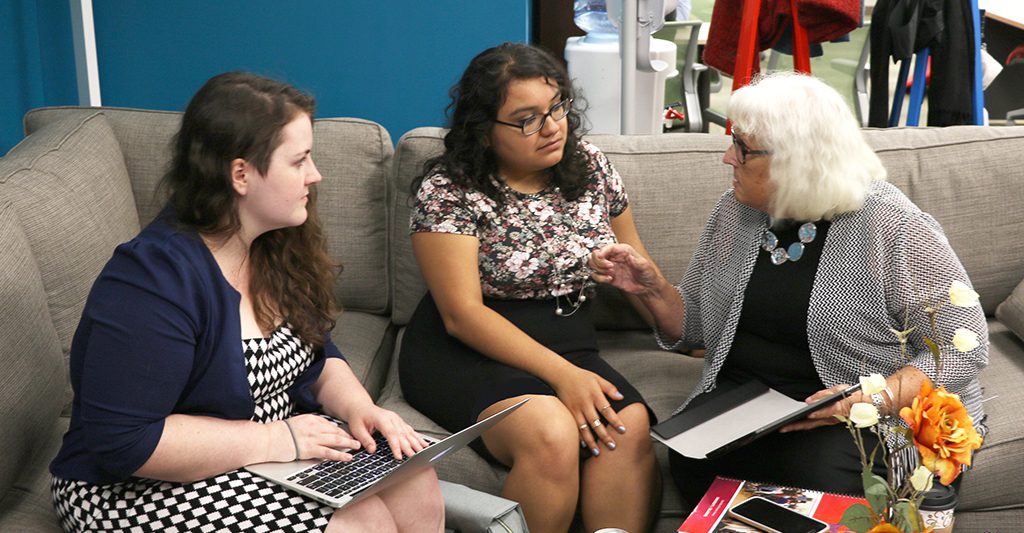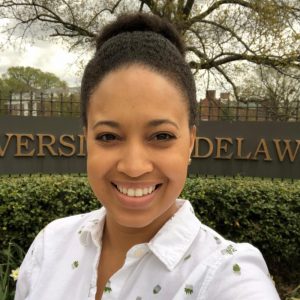Human Development and Family Sciences
M.S. in Human Development and Family Sciences

Students complete an MS through a combination of coursework, service-learning, theory and research. This program is geared toward working professionals and other individuals who are interested in continuing their graduate studies and would like to acquire new or additional expertise in early childhood education, adolescent development and emerging adulthood, nonprofit programs for children, adults, and their families, and management and leadership. The M.S. program emphasizes risk-and- resilience, multi-cultural issues, disabilities, and prevention and intervention. Students are accepted on both a full-time and part-time basis.
This program offers three concentrations.
(Students can also choose electives that provide depth within a specialization area.)

This program offers advanced research-based training in child development and human services leadership, including a partnership with the School of Public Policy and Administration. This program is designed for students who wish to gain knowledge related to human development before entering the workforce and professionals seeking to advance in careers in research, non-profit agencies, state government, and early childhood centers.

The HDFS Graduate Student Brown Bag series is a monthly professional development series organized by graduate students. Monthly topics are carefully chosen based on graduate student needs and interests and have included subjects such as writing grants, attending and presenting at professional conferences, navigating sensitive academic conversations, instructing undergraduate courses, and securing non-academic positions post-graduation.
Adolescent and Youth Development/Research Concentration
| Course requirement | Credit hours |
| HDFS 601 Theories of Human Development | 3 |
| HDFS 615 Research Methods | 3 |
| HDFS 621 Family Studies 1: Empirical and Theoretical Perspectives | 3 |
| HDFS 637 Program Planning, Assessment and Evaluation | 3 |
| EDUC 665 Elementary Statistics | 3 |
| 600/800 Statistics Course | 3 |
| HDFS 600/800 Electives in area of interest | 6 |
| HDFS 869 Thesis or Field Experience with project/portfolio | 6 |
| Total | 30 |
Early Childhood Development and Inclusive Education Concentration
| Course requirement | Credit hours |
| HDFS 601 Theories of Human Development | 3 |
| HDFS 615 Research Methods | 3 |
| HDFS 621 Family Studies 1: Empirical and Theoretical Perspectives | 3 |
| HDFS 637 Program Planning, Assessment and Evaluation | 3 |
| EDUC 665 Elementary Statistics | 3 |
| HDFS 600/800 Interest Electives in Early Childhood Education | 12 |
| or HDFS 868 Capstone Project/ or Field Experience with project/portfolio | 6 |
| HDFS 869 Thesis or Field Experience with project/portfolio | 6 |
| Total | 33 |
Human Services Leadership Concentration
| Course requirements | Credit hours |
| HDFS 601 Theories of Human Development | 3 |
| HDFS 615 Research Methods | 3 |
| HDFS 621 Family Studies 1: Empirical and Theoretical Perspectives | 3 |
| HDFS 637 Program Planning, Assessment and Evaluation | 3 |
| EDUC 665 Elementary Statistics | 3 |
| 600/800 Statistics | 6 |
| HDFS 869 Thesis or Theoretical paper w/ Field Experience | 6 |
| Restricted Electives: Choose 3 of the following courses | Credit hours |
| HDFS 642 Leadership in Human Services | 3 |
| HDFS 669 Supervised Field Experience | 3 |
| UAPP 693 Public Economics | 3 |
| UAPP 694 Financial Management in Public and Nonprofit Sectors | 3 |
| UAPP 696 Human Resources in Public and Nonprofit Organizations | 3 |
| UAPP 697 Leading Organizations in Public and Nonprofit Sectors | 3 |
| UAPP 698 Management Decision Making in Public & Nonprofit Sectors |
3 |
| Total | 33 |
Student Outcomes
Graduates of the M.S. program have been successful in gaining employment in their chosen career paths, which include research and human services leadership positions. The majority of these graduates remain in an academic setting for their jobs, working to support research or service activities. Others are enrolled in doctoral programs at the University of Delaware or another institution, including the University of Alabama, Virginia Tech, and Drexel University. Nonprofit organizations and consulting firms are also frequent career destinations for our graduates.
- Application Deadline: December 15
- Transcripts of all previous academic work: Undergraduate cumulative GPA of at least 3.0 with a major GPA of at least 3.25; Graduate cumulative GPA of at least 3.5
- Three letters of reference;
- A personal statement essay that demonstrates alignment between the candidate’s statement of objectives and interests and the department’s capacity and available mentors;
- For international applicants, whose first language is not English, a Test of English as a Foreign Language (TOEFL) iBT score of 100 or a score of 7.0 on the International English Language Testing System (IELTS) is required.
- For the coming admission year (2020-2021), HDFS graduate program admissions will accept the virtual language assessment test iTEP Academic-Plus as a valid alternative measure of language proficiency. The minimum score required is 4.5.
- All candidates must participate in an interview.
Scholarships & Awards
Full-time graduate students may qualify for financial aid, assistantships, and scholarships to help offset the cost of tuition, housing, and other expenses. Graduate students are also eligible to be nominated for several competitive merit-based financial awards.

The academic quality of the University of Delaware, and in particular the Human Development and Family Sciences department, is unquestionable. The guidance and advice I received has been invaluable to my success. My professors set the bar high and they did everything in their power to help me reach it. I felt supported not only in the program but also as a future researcher.
Imani Lawson